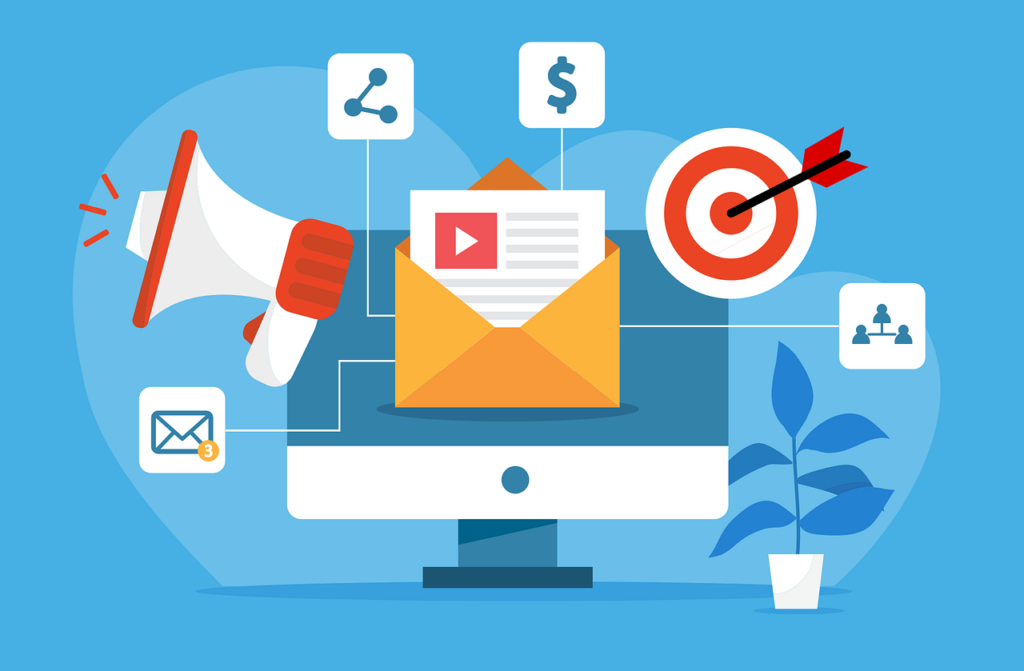The Importance of Email Marketing for Business Success
In an era dominated by social media, mobile marketing, and digital advertising, email marketing remains one of the most potent, effective, and essential tools available to businesses. Despite rapid technological advances and shifting consumer behaviors, email delivers unparalleled value, offering unmatched ROI, audience engagement, and personalized customer interactions. This extensive guide explores why email marketing is crucial for businesses of all sizes and industries.
Understanding Email Marketing
Email marketing involves sending commercial messages directly to a targeted group via email. It can encompass newsletters, promotional campaigns, transaction confirmations, updates, and personalized content. Its primary objective is to foster customer loyalty, build brand awareness, enhance customer relationships, and drive conversions.
Why Email Marketing Matters
1. Exceptional Return on Investment (ROI)
Email marketing consistently ranks as one of the highest ROI marketing channels. According to numerous studies, email marketing can deliver up to $40 for every dollar spent. This impressive ROI arises from email marketing’s low operational cost and high effectiveness in driving conversions.
2. Direct Communication and Personalized Messaging

Email allows businesses to communicate directly with individual customers. Unlike social media or online advertising, emails land directly in customers’ inboxes, providing more personalized communication opportunities. Companies can tailor messages based on user data, preferences, behavior, and past interactions, significantly boosting engagement and conversion rates.
3. Building and Maintaining Customer Relationships
Regular, meaningful email communication helps businesses maintain strong customer relationships. Emails that provide value through educational content, special promotions, or exclusive offers strengthen customer loyalty and retention.
4. Increased Web Traffic and Sales
Strategically crafted emails with clear calls-to-action (CTAs) drive significant website traffic. Emails highlighting special offers, new products, or compelling content often increase sales and enhance website engagement.
5. Easy Measurement and Analysis
Email marketing provides comprehensive data analysis capabilities. Businesses can track open rates, click-through rates, conversions, and subscriber behavior. These insights enable continual optimization, allowing marketers to refine strategies, enhance performance, and achieve better results.
Essential Components of Effective Email Marketing
1. Targeted Audience Segmentation
Segmentation involves dividing your email list into distinct groups based on demographics, interests, purchase history, or behavior. Segmented campaigns yield significantly higher engagement rates, as messages are explicitly tailored to relevant audience subsets.
2. High-Quality Content
Quality content is vital to successful email campaigns. Emails should deliver valuable, relevant, and engaging information. Content types may include educational articles, exclusive deals, product updates, industry insights, or personalized recommendations.
3. Compelling Subject Lines

The subject line dramatically influences email open rates. Strong subject lines are concise, clear, and engaging, evoking curiosity or urgency and compelling recipients to open the email.
4. Mobile Optimization
A significant portion of emails are opened on mobile devices. It is crucial to ensure that emails are responsive and visually appealing on smartphones and tablets. Mobile optimization enhances user experience and boosts engagement.
5. Clear Calls-to-Action (CTAs)
Effective CTAs guide recipients toward desired actions. CTAs should be prominent, clear, actionable, and relevant to the content. Common CTAs include “Shop Now,” “Download Here,” or “Learn More.”
Advanced Email Marketing Strategies
1. Automation
Automated email campaigns streamline marketing processes and improve customer experience. Standard automated campaigns include welcome emails, abandoned cart reminders, post-purchase follow-ups, and personalized recommendations. Automation saves time and ensures consistent customer communication.
2. Drip Campaigns
Drip campaigns involve sending scheduled sequences of emails to nurture leads or educate subscribers. These campaigns deliver timely, relevant information, effectively moving subscribers through the sales funnel.

3. A/B Testing
Regular A/B testing (split testing) optimizes email campaign effectiveness. Testing subject lines, content variations, CTAs, or sending times reveals which strategies resonate best with your audience, enabling continuous improvement.
4. Re-engagement Campaigns
Re-engagement emails target inactive subscribers, attempting to reignite interest through incentives, exclusive offers, or personalized content. Successful re-engagement boosts overall engagement and subscriber retention.
5. Personalization and Dynamic Content
Personalization extends beyond addressing recipients by name. Advanced personalization involves dynamically tailoring content based on user behavior, past interactions, purchase history, or interests, significantly enhancing engagement and conversions.
Common Mistakes to Avoid in Email Marketing
- Ignoring Mobile Optimization: Always ensure emails are responsive and accessible across devices.
- Overloading Subscribers: Avoid bombarding subscribers with frequent or irrelevant emails.
- Poorly Designed Emails: Ensure emails have a clean, professional design with clear messaging.
- Ignoring Analytics: Consistently monitor and analyze campaign performance for ongoing improvements.
Email Marketing and Compliance
Businesses must comply with email marketing regulations such as CAN-SPAM (USA) and GDPR (Europe). Compliance involves obtaining explicit consent, providing unsubscribe options, and transparently managing user data.
Integrating Email Marketing into Your Overall Strategy
Email marketing is most effective when integrated with broader marketing efforts:
- Social Media Integration: Encourage subscribers to follow your social media channels.
- Content Marketing Alignment: Regularly share valuable content via email, driving traffic to blogs or resources.
- Promotional Synergy: Combine email marketing with online advertising and special promotions for amplified impact.
Conclusion
Email marketing remains indispensable for businesses aiming for sustained growth, customer retention, and robust ROI. Leveraging targeted, personalized, and strategic email campaigns empowers businesses to foster meaningful customer relationships, enhance brand credibility, and achieve marketing objectives. By investing in high-quality content, advanced segmentation, automation, and consistent optimization, businesses of all sizes can harness email marketing’s immense potential, ensuring ongoing success in today’s competitive digital marketpla


